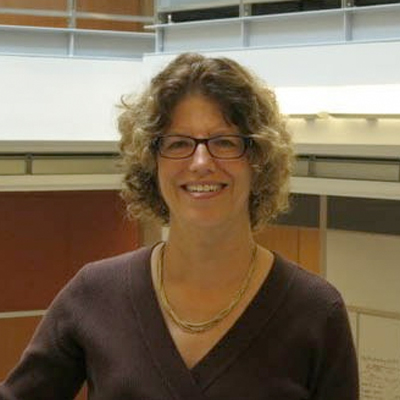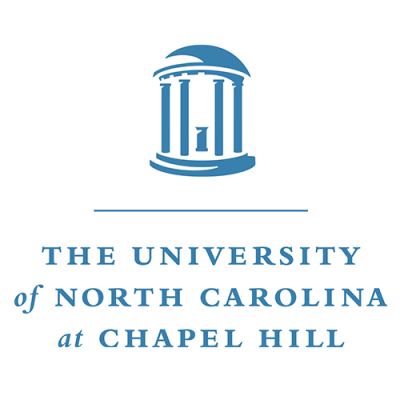Revolutionizing treatments for fatal cancers and heart disease
Every year, over 230,000 women in the US are diagnosed with breast cancer. 15-20% of those diagnoses are for a particularly aggressive form of breast cancer called triple negative breast cancer and approximately 25% of those patients do not live beyond five years of their diagnoses. Despite the incredible risk of a triple negative breast cancer diagnoses, there are currently no targeted therapies. Dr. Leslie Parise, Professor and Chair of the Department of Biochemistry and Biophysics at the University of North Carolina at Chapel Hill, is developing therapies for breast cancer patients. Specifically, she and her team are studying a protein that when depleted or inhibited, destroys triple negative and other cancer cells but not normal cells thereby making this protein a safe and effective target. In so doing, she is actively pursuing a treatment for what today is often a fatal diagnoses.
Dr. Parise currently has a dedicated team that she wishes to expand to accelerate the rate of discovery and broaden her research questions. Falling under the umbrella of both the School of Medicine and the Linberger Comprehensive Cancer Center (LCCC), her team is motivated by clinicians and researchers who have seen first-hand the challenges at hand with a triple negative breast cancer diagnoses. This has promoted research with a mission of true impact. In fact, she and her team have already shown that their target is effective in most triple negative breast cancer cell lines tested to date. In the near future, they hope to have therapeutics ready for testing in mice and soon after in human clinical trials.
Current research includes:
-
Cancer: Triple Negative Breast Cancer: Central to the lab’s current goals is to find an effective target for triple negative breast cancer. The properties of Dr. Parise’s target are consistent with the emerging concept of non-oncogene addiction, which describes how cancer cells not only become addicted to oncogenic pathways for survival but also to non-oncogenic proteins. In contrast, normal cells are not dependent on, or addicted to, these non-oncogenic proteins for survival. Non-oncogenic proteins therefore have impressive therapeutic potential for difficult cancers when perturbed, with minimal impact on normal cell growth. However, they are too often overlooked as anticancer targets because they are not necessarily mutated or overexpressed. Dr. Parise has made non-oncogenic proteins central to her current research and thus far, with results that appear to lead to treatment.
-
Reveris: Dr. Parise started a company, called Reveris Therapeutics, to help bring her upcoming therapeutics ready for the market. By expanding the space for research to the commercial realm, she and her team hope to provide new therapeutics for patients affected by triple negative breast cancer and other diseases. To learn more about Reveris, visit the website at http://reveris.com.
-
Cardiovascular: Dr. Parise’s interests in cardiovascular disease, first kindled by her graduate studies, have remained constant over time. Currently, she and her team are developing a therapeutic, that unlike current medications, can inhibit platelets to prevent heart attacks or strokes while avoiding the harmful side effect of bleeding.
Bio
Dr. Leslie Parise has been passionate about science and research since she was in the fourth grade. In fact, as a child, she was especially interested in astronomy. She remembers checking out every astronomy book in the library. Her parents fostered her interests by buying her a telescope as well as scientific supplies by mail-order. In the fifth grade, she became more interested in the biological sciences because of a wonderful teacher that had her do a large project about the human body. By the time she reached high school, Dr. Parise already had dreams of becoming a biochemist on her horizons.
As a graduate student at the University of Illinois, Chicago, Dr. Parise worked in a lab that studied the relationship between platelets and heart disease. Afterwards, she continued at the Gladstone Foundation at UCSF to continue research on platelets, but through the lens of biochemistry. Her PI at the Gladstone Foundation was interested in translational research that could be practical and helpful for the lives of patients. Dr. Parise carried these experiences, and the hope of having an impact on the lives of patients with her when she accepted her own position as an Assistant Professor at the University of North Carolina, Chapel Hill. Because of the strong research environment at the University of North Carolina for both cancer and cardiovascular research, she and her team have been able to move quickly into the cancer field to make exciting new discoveries.
In her free time, aside from research, Dr. Parise enjoys golfing, reading, and playing tennis. She also shares that she loves fishing, but as the only one in her family with this interest, she doesn’t get out on the water often enough.


